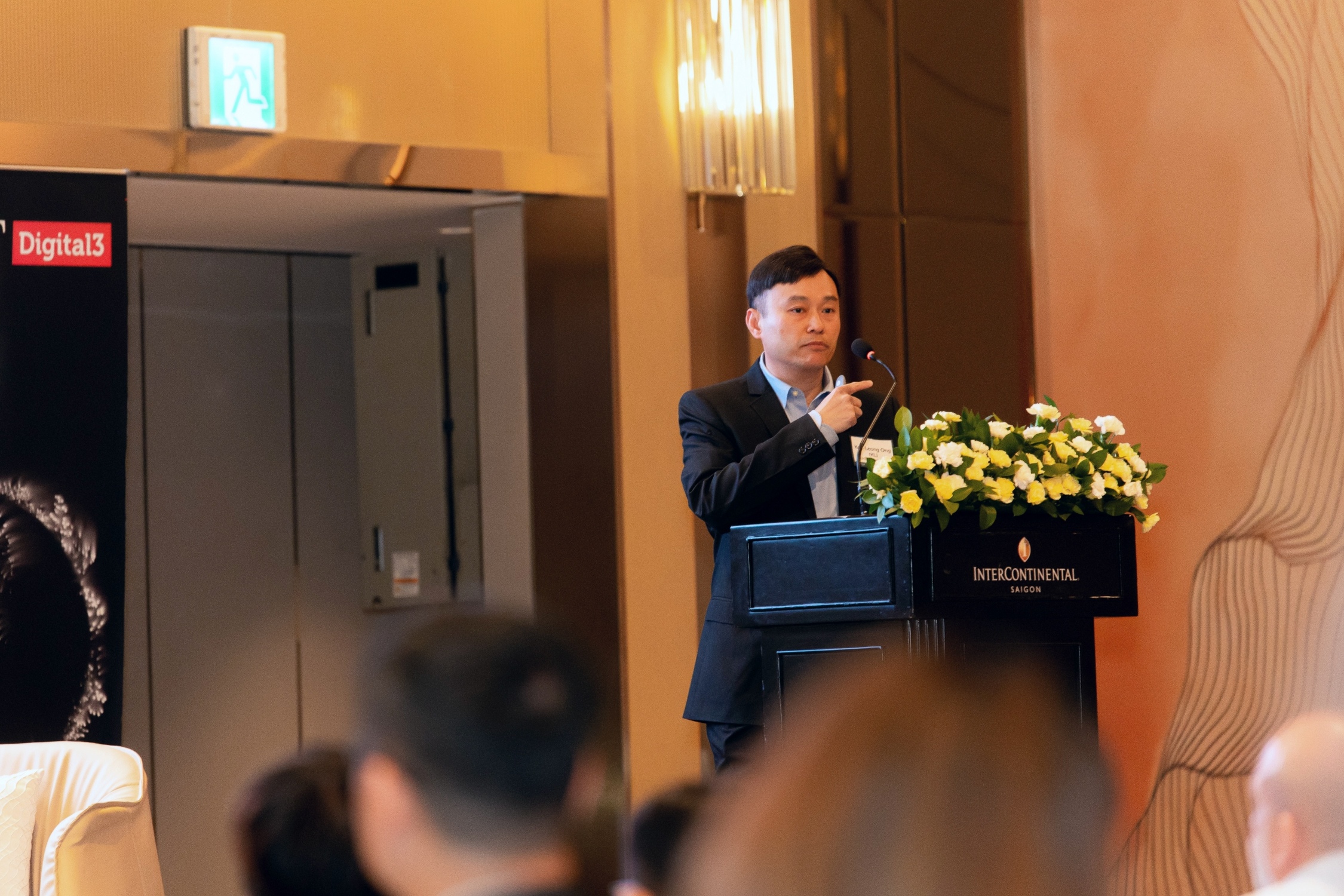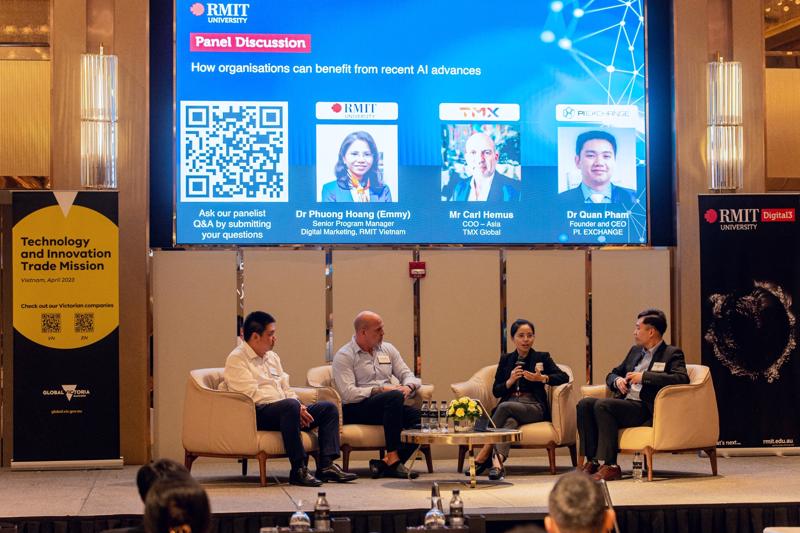The rise of generative AI promises to be a game-changer for businesses.
Speaking at an event with the theme “What’s Next in Generative AI: Implications and Opportunities for Business” on April 13 in Ho Chi Minh City, Professor Kok-Leong Ong, Director of the Center for Data Analytics and Artificial Intelligence at RMIT University, showed how businesses can embrace the trend.
According to Professor Ong, the great thing about generative AI is that the technology is accessible to all. “Unlike the early days of AI development, when you needed significant in-house investment, this time around we are getting AI as a service. Businesses or anyone can easily tap into its capabilities and customize it for their own purposes.”
For example, a small tourist operator can use ChatGPT to provide responses to customer enquiries from around the world, such as suggesting personalized tours. The normal back and forth can be time consuming and expensive to get humans to do. “ChatGPT can replace this and reduce the number of humans in the process,” he added. “And when the prospective customer is finally happy, the human can come into the picture to book the plane ticket, tours, and hotels.”
Pointing out the potential challenges of using AI, he said businesses will still need to invest and understand what the technology is capable of. Using technology is the easy part, while embedding business policies and legislative requirements from local governments into the AI as part of business workflows is much more difficult. Furthermore, companies still need to constantly maintain the technology, like any other digital system.

Noting that enterprises will need to embrace AI at some point in time, he underlined that the question of how soon, how much, and how to is very much dependent on the individual business, but those that can develop a strategy around embracing AI will likely be winners in their own domain if they consider the risks and develop plans to manage them along the way.
“Learning from history, companies who embrace and look to leverage a new technology often go on to become very successful and usually benefit from absorbing those competitors who refused to change,” Professor Ong affirmed, adding that “AI is not just about delivering efficiency for businesses. It will drive productivity through efficiency gains, and it will also drive ‘experience’.”
“Increasingly, this is going to be particularly important as Vietnamese improve their quality of life as they benefit from the growth of the economy. Vietnamese consumers will want a smarter and more personalized experience in their interactions with an organization’s digital shopfront, resulting in thinking about the ‘experience’ that AI can enable on a massive scale.”
According to data form the World Bank, Vietnam’s economy is growing rapidly, with the digital sector expanding by 10 per cent every year and it may reach over $200 billion by 2045.
The Vietnamese Government has made a clear strategic investment to develop Vietnam’s digital economy, including a close partnership with Australia. According to the draft National Digital Transformation Program, Vietnam aims to ensure that the digital economy accounts for 30 per cent of its GDP by 2030. With the move to a more digital economy, there will be a lot of opportunities for local businesses.









 Google translate
Google translate